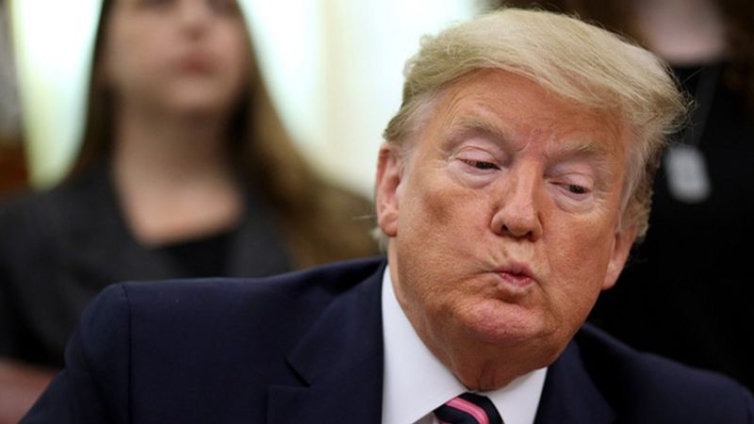As president of the United States, Donald Trump enjoyed unique protection from legal action, be it criminal or civil.
Now, after losing the 2020 presidential election, Mr. Trump will soon become a private citizen again.
That means he will lose his presidential privileges, putting him in the crosshairs of litigators and prosecutors.
"Once he is out of office, the atmosphere will change," Daniel R Alonso, a former US federal and New York state prosecutor, told the BBC. "He will no longer have the reality or the threat of presidential power to thwart investigations."
A wide-ranging criminal investigation in New York is the most serious legal concern for Mr. Trump and his real-estate company, the Trump Organization.
On top of that, there is an array of lawsuits ranging from allegations of fraud by a family member to sexual harassment by an advice columnist.
A legal storm is brewing. Here, we consider how the six biggest legal battles may develop.
The hush-money allegations
What we know: Playboy model Karen McDougal, adult film actress Stormy Daniels and claims of a conspiracy of silence.
This was the gist of the so-called hush-money scandal. Both women said they had had sexual relationships with Mr. Trump and had received payments to keep them quiet, ahead of the 2016 presidential election.
When they spoke out in 2018, they threw political dynamite under Mr. Trump's presidency, lighting the fuse of two criminal investigations.
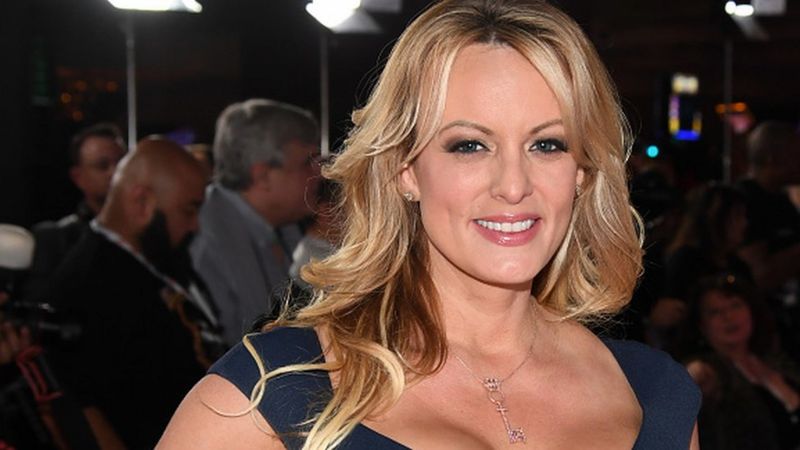
The first focused on violations of federal, or national, laws and the role of Michael Cohen, Mr. Trump's former personal lawyer and "fixer".
Under investigation, Cohen admitted to arranging payments to the two women. The payments were prosecuted as campaign-finance violations and Cohen was sentenced to three years in jail in 2018.
Cohen alleged that Mr. Trump had "directed" him to make the payments, yet no charges were brought against the president. Why?
Firstly, to charge Mr. Trump, prosecutors would have needed to prove that he had indeed directed Cohen to make those payments. Secondly, even if prosecutors did have sufficient evidence, it is against US government policy to indict a sitting president on federal criminal charges, legal experts say.
Case closed, right? Well, not exactly. This is where it gets technical.

Put simply, a second criminal investigation into the payments is still under way in New York.
We know that Manhattan District Attorney Cyrus Vance is examining whether the Trump Organization falsified business records related to the payoffs.
What we don't know is whether Mr. Vance has any evidence to file criminal charges. That matters.
What might happen next: Falsifying business records is a misdemeanour under New York law. A misdemeanour is a minor crime that can be punishable by a jail term of up to a year.
Now, here's the tricky part for Mr. Vance.
There is a two-year time limit for filing criminal charges for a misdemeanour in New York.
"So, because those payments happened over two years ago, it looks like [prosecutors] are out of luck," Mr. Alonso said.
That said, there are other possibilities.
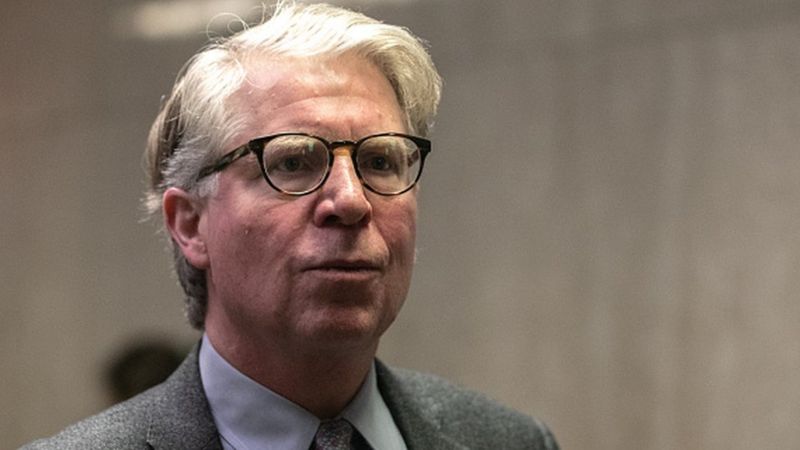
In New York, falsifying business records can be charged as a felony if it is done to conceal other crimes, such as tax fraud.
Felonies are more serious crimes that can be prosecuted over a longer period and are punishable by tougher jail sentences.
Still, the route to prosecution is uncertain. It is not clear if Mr. Trump can be prosecuted under New York law for campaign-finance violations - the federal crime Cohen was jailed for.
This is where the other strands of Mr. Vance's investigation come in.
The tax and bank fraud investigation
What we know: It's a "political hit job", a Trump Organization lawyer said of Mr. Vance's inquiry in August 2019.
The lawyer's statement was seething.
Mr. Vance had just issued a request for documents, known as a subpoena. He demanded to see years of financial records, including the Holy Grail - Mr. Trump's tax returns, eight years of them.
Since then, Mr. Trump has tried to block the subpoena, arguing in courts that it amounts to political harassment. In October, a federal appeals court disagreed, putting his tax returns within touching distance of prosecutors.
Indeed, Mr. Vance has stressed the significance of Mr. Trump's tax returns in court papers.
When requesting the returns in August, Mr. Vance referred to "public reports of possibly extensive and protracted criminal conduct at the Trump Organization", including allegations of possible insurance and bank fraud. Another court filing in September mentioned tax fraud as a hypothetical crime that could be established, should evidence be found to support it.
In New York, some types of tax fraud can be charged as felonies, which can carry lengthy prison sentences. At the moment, though, the "public reports" of possible crimes cited by Mr. Vance's office are merely grounds for investigation, nothing else.
What might happen next: Mr. Trump is expected to appeal against the demand to hand over his tax returns in the Supreme Court. There, the matter may be settled.
For Mr. Trump, the stakes are high.
"The most significant criminal investigations are those exploring his tax and bank filings," Jonathan Turley, a professor of law at George Washington University, told the BBC. "But whether there's a criminal case has yet to become evident."
If Mr. Vance does obtain Mr. Trump's tax returns, a criminal case may or may not become evident. Either way, Mr. Vance needs those tax returns to move his investigation forward.
The real-estate fraud investigation
What we know: New York Attorney General Letitia James has been another thorn in Mr. Trump's side.
Since March 2019, Ms James has been leading a civil investigation into whether the Trump Organization committed real-estate fraud.
Again, the roots of this investigation lead back to Cohen who, in February 2019, told Congress that Mr. Trump had inflated the value of his property assets to secure loans and understated them to reduce his taxes.
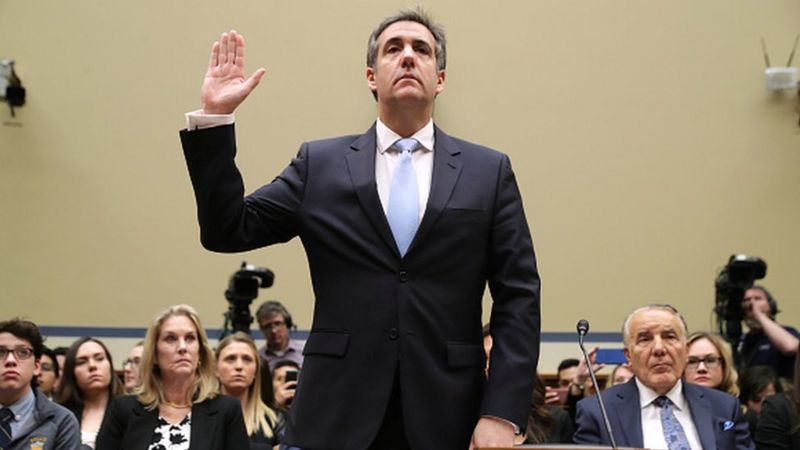
Cohen's testimony gave Ms James grounds to seek information about Mr. Trump's property empire. Like Mr. Vance, Ms James has had to fight for that information in the courts.
Eric Trump, the executive vice-president of the Trump Organization and the president's son, has accused her of waging a "political vendetta". Despite this, he complied with a request to sit for testimony with her office in October.
What might happen next: Ms James needs more testimony and information to take the investigation forward.
In office, Mr. Trump argued that he was too busy to deal with lawsuits. Now, he cannot use that excuse.
Ms James can treat Mr. Trump with less deference, pressing him to sit for questioning under oath, just like his son.
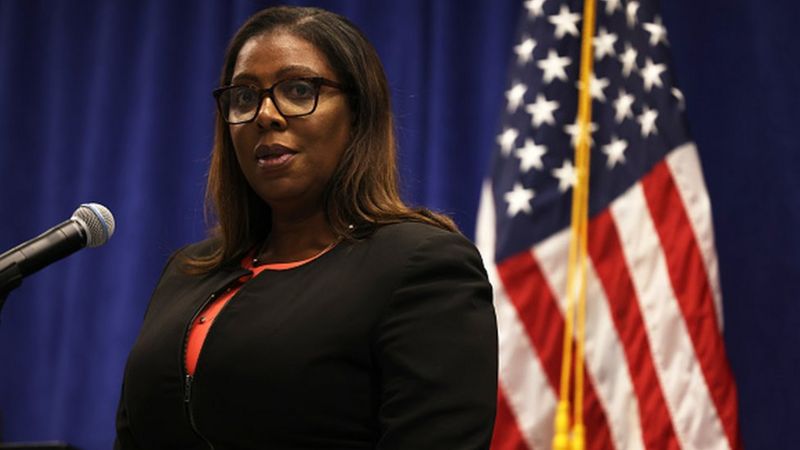
"Most courts would be very indulgent with a president-defendant on things like scheduling, for instance. Not so with a private citizen," Mr. Alonso said.
Civil investigations like this can result in financial penalties, if evidence of wrongdoing is found. If it is, another criminal inquiry cannot be ruled out.
The emoluments cases
What we know: Emolument is an archaic word that is seldom used today, except in legal contexts. The definition is contested, but it is generally understood to mean gain, profit or advantage from employment or holding public office.
So what does this have to do with Mr. Trump?
He has been accused of breaking rules against "emoluments" during his presidency. These rules, known as the emoluments clauses, were written into the country's bedrock legal text, the US Constitution.
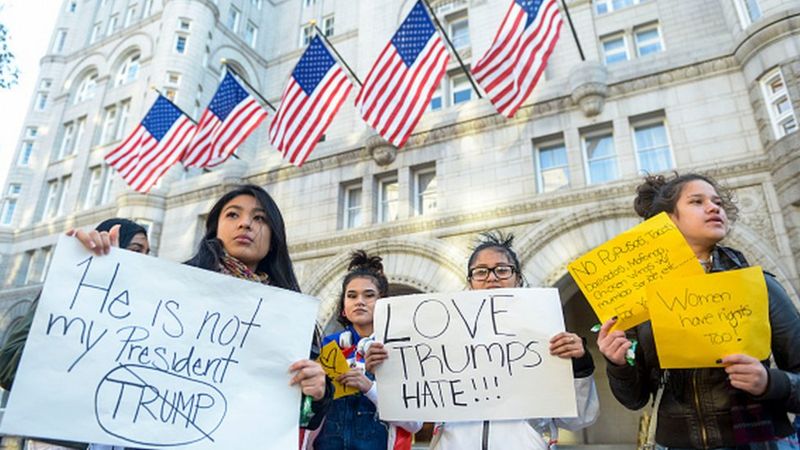
One clause requires all federal officials, including the president, to seek the consent of Congress before accepting any benefits from foreign states.
Three separate civil lawsuits alleged that Mr. Trump had not sought that consent. One cited the hosting of foreign officials at the Trump International Hotel in Washington DC as a possible violation.
Mr. Trump has derided "this phony emoluments clause", suggesting other sitting presidents have made money.
What might happen next: Regardless, the emoluments lawsuits will probably be dismissed or dropped, legal experts say. One brought by congressional Democrats has already been rejected by the Supreme Court.
"Emoluments are not likely to be the basis of any criminal action," said Mr. Turley, an expert on constitutional law.
"The emoluments cases relate to Trump holding office, so once he leaves office, the controversy becomes largely academic."
The sexual misconduct lawsuits
What we know: Mr. Trump has been accused of sexual misconduct by multiple women whose allegations span decades. Mr. Trump has denied all the allegations, dismissing them as "fake news", political smears and conspiracies.
Many of the accusers came forward ahead of Mr. Trump's election win in 2016. Mr. Trump vowed to sue them all but, as yet, has not done so.
Instead, some of the accusers have sued Mr. Trump. Two of those women have filed defamation lawsuits against Mr. Trump for calling them liars.
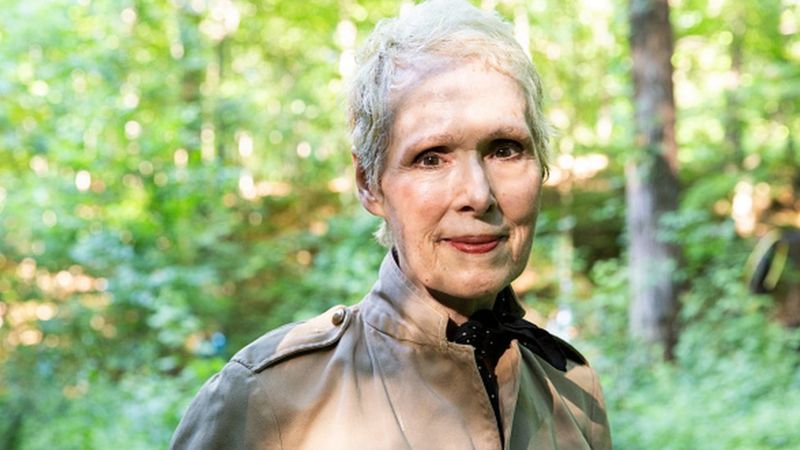
E Jean Carroll, a long-time columnist for Elle magazine, is one of them. She has accused Mr. Trump of raping her in a dressing room at a luxury Manhattan department store in the 1990s. Mr. Trump denies it and is contesting the defamation claim.
In her lawsuit, Ms Carroll argues Mr. Trump defamed her by saying he could not have raped her because "she's not my type". Her lawsuit seeks unspecified damages and a retraction of Mr Trump's statements.
Ms Carroll v Mr. Trump seemed straightforward enough until September, when the US Department of Justice weighed in.
The department took the unusual step of trying to replace Mr Trump with the United States as a defendant in the case.
In the end, a federal judge ruled against the department's intervention, arguing "the allegations have no relationship to the official business of the United States".
What might happen next: The case can now proceed, allowing Ms Carroll's lawyers to gather evidence.
For example, they could press on by attempting to verify if Mr. Trump's DNA is on a dress Ms Carroll says she was wearing at the time of the alleged assault. For that, they would need a DNA sample from Mr. Trump.
A similar but separate defamation lawsuit filed by Summer Zervos, a former contestant on Mr. Trump's television show The Apprentice, may go the same way.
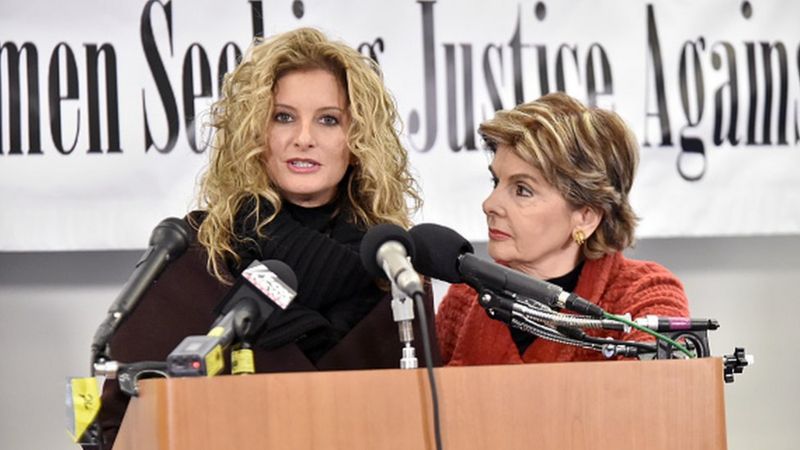
Ms Zervos alleged that Mr Trump had sexually assaulted her during a meeting to discuss job opportunities at a Beverly Hills hotel in 2007.
Mr. Trump dismissed the allegation as "phony", accusing Ms Zervos of fabricating it for fame. Ms Zervos then sued him for defamation in 2017, seeking damages of at least $3,000.
Mr. Trump tried to get the case dismissed during his presidency. His lawyers suggested that, as president, he should be immune to lawsuits in state courts.
"That argument completely evaporates on 20 January," Barbara L McQuade, professor of law at the University of Michigan, told the BBC. "Once that happens, we move to the discovery phase of the case and there could be some movement there."
The Mary Trump lawsuit
What we know: "Fraud was not just the family business - it was a way of life," reads the first line of Mary Trump's lawsuit against her uncle Donald.
As an opening salvo, it could hardly be more contemptuous.
It mirrors the animosity of Ms Trump's newly released memoir, in which she chastises her uncle as a "narcissist" who threatens the life of every American.
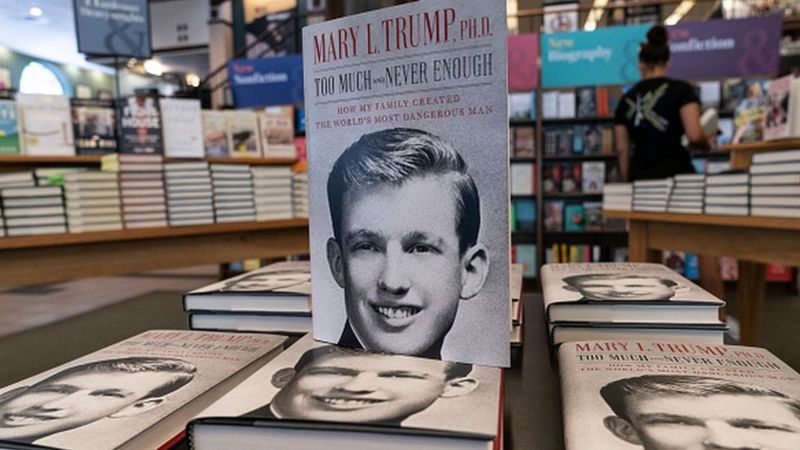
The family beef is as personal as it gets and Ms Trump's lawsuit, filed in September, reflects that acrimony.
In it, she accuses Mr. Trump and two of his siblings of cheating her out of an inheritance while pressuring her to give up interests in the family business.
Ms Trump inherited valuable interests in the family business when Fred Trump Jr - her father and the president's older brother - died in 1981 at the age of 42. Ms Trump was 16 at the time.
Mr. Trump and his siblings "committed to watch over" Ms Trump's interests, the lawsuit says.
"They lied," the lawsuit says. "Rather than protect Mary's interests, they designed and carried out a complex scheme to siphon funds away from her interests, conceal their grift [fraud], and deceive her about the true value of what she had inherited."
The lawsuit seeks at least $500,000 in damages.
What might happen next: The White House said Ms Trump's book was full of "falsehoods", but Mr. Trump is yet to reply to the lawsuit.
If requests for documents and testimony come, Mr. Trump cannot cite his presidential duties as a reason to deny them.
No American citizen, not even the president, is categorically above the law.
Latest Stories
-
EBID wins the Africa Sustainability Award
20 minutes -
Expansion Drive: Takoradi Technical University increases faculties
5 hours -
SHS heads demand payment of outstanding funds before reopening of schools
5 hours -
We thank God for the 2024 general elections – Akufo-Addo
5 hours -
Coconut Grove Beach Resort marks 30 years of excellence with memorable 9 lessons & carols service
6 hours -
WAFU B U-17 Girls’ Cup: Black Maidens beat Nigeria on penalties to win inaugral tournament
6 hours -
Real Madrid beat Sevilla to keep pressure on leaders Atletico
7 hours -
Liverpool put six past Spurs to go four points clear
7 hours -
Manchester United lose 3-0 at home to Bournemouth yet again
8 hours -
CHAN 2024Q: ‘It’s still an open game’ – Didi on Ghana’s draw with Nigeria
8 hours -
CHAN 2024Q: Ghana’s Black Galaxies held by Nigeria in first-leg tie
9 hours -
Dr Nduom hopeful defunct GN bank will be restored under Mahama administration
9 hours -
Bridget Bonnie celebrates NDC Victory, champions hope for women and youth
9 hours -
Shamima Muslim urges youth to lead Ghana’s renewal at 18Plus4NDC anniversary
10 hours -
Akufo-Addo condemns post-election violence, blames NDC
10 hours

